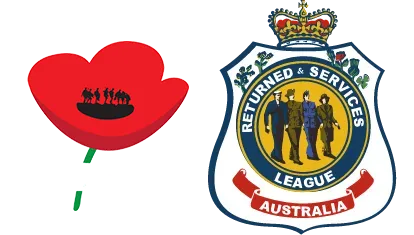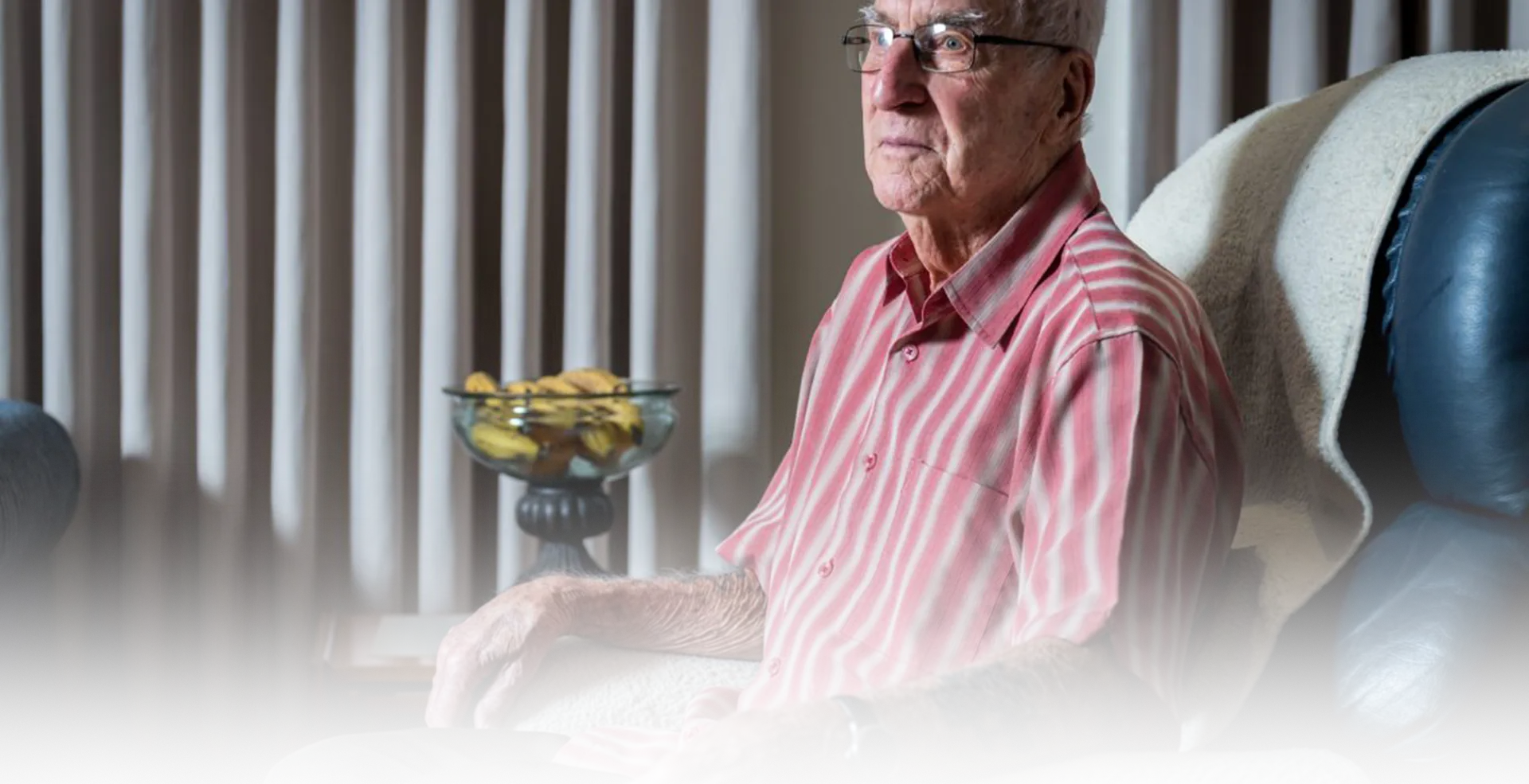
© 2025 RSL Victoria
This donation goes to the RSL General Appeals Patriotic Fund No. B86 and is tax deductible.
Eligible tax-deductible donations have Deductible Gift Recipient (DGR) status with the Australian Tax Office.

It was supposed to be a perfectly planned ambush. But the Battle of Muar - the last major clash of the Malayan campaign - was a bloody and ruthless affair.
Australian and British forces had been hopelessly outnumbered in January, 1942. Expecting a small contingent of enemy troops on the banks of the Muar River, they instead confronted the Japanese Imperial Guards Division.
In the madness that followed the Australians were ordered to retreat but Mr Kerr was separated from his gun crew, members of the 4th Antitank Regiment.
He made the dash successfully and joined up with 44 other soldiers from the 2nd 29th Battalion as they navigated through the jungle, desperate for survival.
“We tried to get food from the natives but there was just too many of us so we decided to split up into three groups,” Mr Kerr said.
“Some of us wanted to make for the west coast, steal a boat and head to Sumatra.”
But then word filtered through that Singapore had been overrun.
The men knew there were out of options.
“We realised we should probably give ourselves up. It was nerve-wracking wondering if we were going to be shot on the spot.”
Taken into custody, he still remembers the journey as they arrive as POWs in Kuala Lumpur.
“There were heads on poles as we drove into the city,” Mr Kerr said.
“Chinese dissidents who had been executed by the Japanese.
“It wasn’t a very pleasant sight. There is no forgetting that.”
The teenager was among 150 Australian troops and 1500 Englishmen first locked up in Pudu Prison then transported to Changi and by March 1943, set to work in gruelling conditions on the infamous Thai-Burma Railway.
It was here that Mr Kerr says Aussie mateship mattered the most. He said having somebody by your side was key to staying healthy and focused.
“If you had a mate, or mates, they were there to help you when you were sick. If you managed to scrounge something or steal something you would share it with your mates. All we had was each other.”
Back home, Mr Kerr’s parents didn’t know if their son was dead or alive.
“From January 1942 until March 43 they had no information of my whereabouts. They were tremendously worried.”
When the railway was completed in 1945, Mr Kerr was still standing. He was then shuffled between working camps until the end of the war.
Now aged 94, he admits his memories are somewhat faded. Like so many veterans he clings to any detail, as the faces and voices of war become increasingly distant. He still remembers contracting malaria for the first time. How could he possible forget? He endured it 20 times during his imprisonment.
Then there was the daily brutality.
“If you didn’t show any fighting spirit you’d be gone,” he said.
“With the terrible conditions and food you were surviving on, if you were weak and you didn’t have that fighting spirit, unfortunately, many men would just throw in the towel.”
Mr Kerr was at Nakon Nai prison camp, about 80km outside Bangkok when he was lined up and told the war was over.
He was free.
“They told us a bomb had been dropped in Japan, the war was over. I had survived three and a half years and I was going home,” he recalled.
To this day, the cheering and shouting and shaking of hands still reverberates. With the surviving POWs he was taken to Bangkok, then Singapore and onto a ship bound for Australia. His father was waiting for him at the Melbourne Showgrounds when they were transported in by bus from the port.
“Dad had served in the first World War,” Mr Kerr said. “He knew what it was all about, what I might have experienced. There was a handshake, of course, maybe even a hug. But I do know it was a wonderful moment,” he said.
Remarkably, no sooner had the young soldier been discharged - he signed up for the Navy. It had been an ambition before the war broke out and he intended to fulfil it. He was dispatched to Japan as part of the occupying forces in 1947. In the years to follow, Mr Kerr would find love and have a family of his own. War had taken its toll - but this was a man determined to never let it rule his life.
“I never had any hang ups, no flashbacks or nightmares, other blokes did of course. They couldn’t even sleep. But after sleeping on bamboo and concrete I was just happy to be back in a comfortable bed.”
Each and every Remembrance Day since, Mr Kerr has spared a thought for all those Aussies who weren’t so lucky to return. Of the 22,000 Australian troops taken prisoner - 8000 died.
“That’s one in three,” Mr Kerr said. “A tremendous casualty rate.”
But he’s a realist. After all these years, he doesn’t look back in anger.
“Suzanne has been a guardian Angel to me, I honestly don’t know what I would’ve done without her.”
Read full story.
“I didn’t feel like I knew where I was supposed to exist in the world. The RSL really helped me with that.”
Watch full story.
“I was surrounded by people who had been through similar experiences… I am thankful for that support.”
Read full story.
“I love seeing veterans come out of those challenges with hope, with determination, and capacity to sustain themselves.”
Watch full story.
“I don’t use the word ‘hate’. It can be all too consuming and I’m not going to let that eat away at me.”
Read full story.
“The Poppy Appeal supports ex-defence servicepeople physically, mentally, financially – and gives them hope.”
Watch full story.
“When you’re in the military, it’s not just a job. You have your community… and when you leave, and that door closes behind you, it can be very isolating.”
Watch full story.
“Transitioning out of the navy was horrible. If it wasn’t for the RSL, we would’ve lost our house, and me, my wife, and our three kids would’ve been living out the back of a car.”
Watch full story.

© 2025 RSL Victoria
This donation goes to the RSL General Appeals Patriotic Fund No. B86 and is tax deductible.
Eligible tax-deductible donations have Deductible Gift Recipient (DGR) status with the Australian Tax Office.